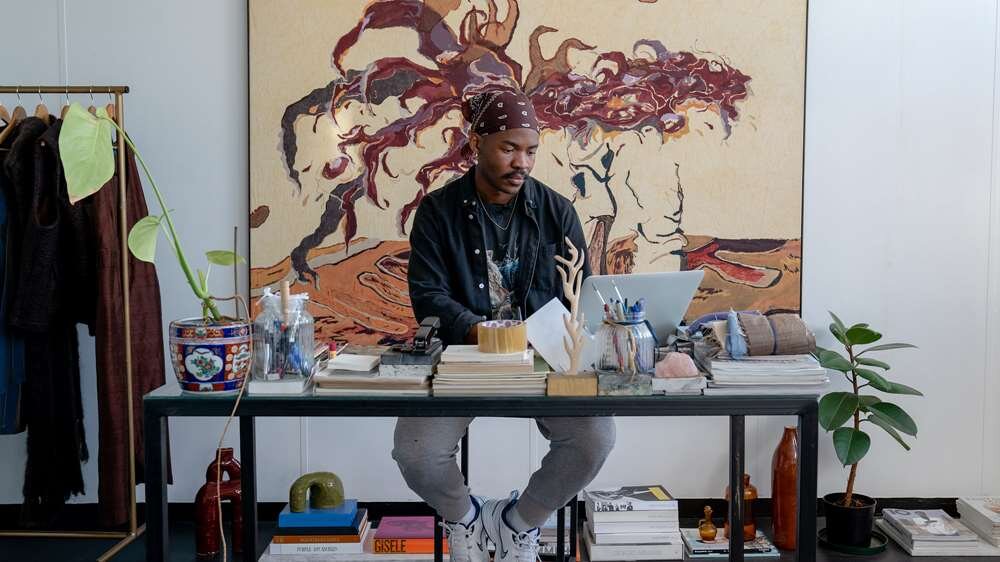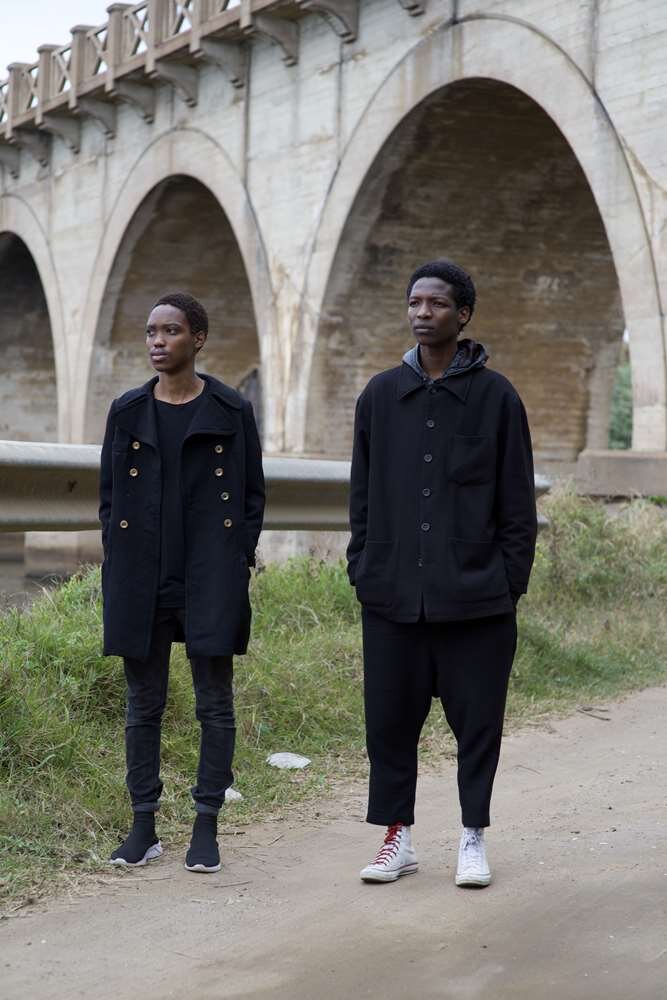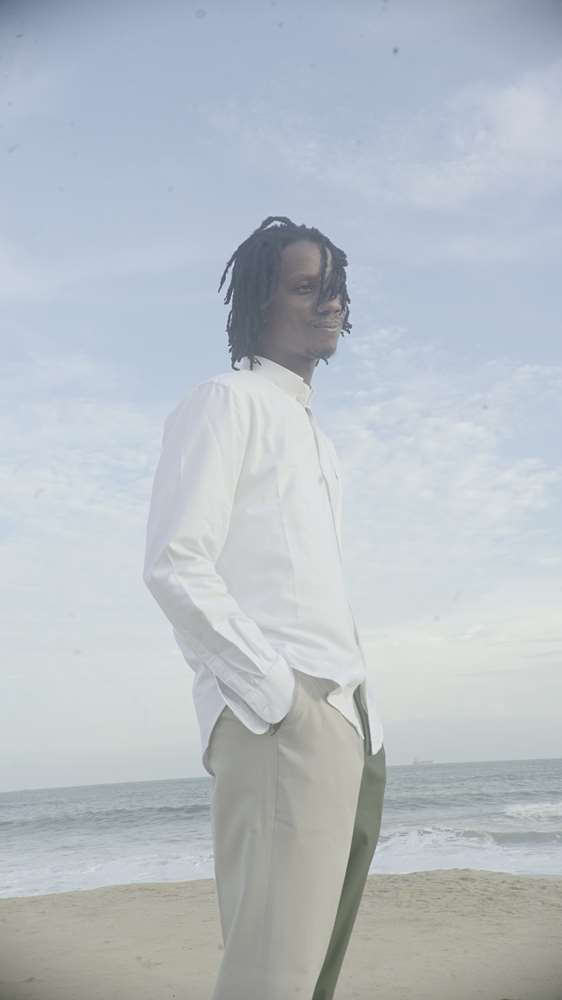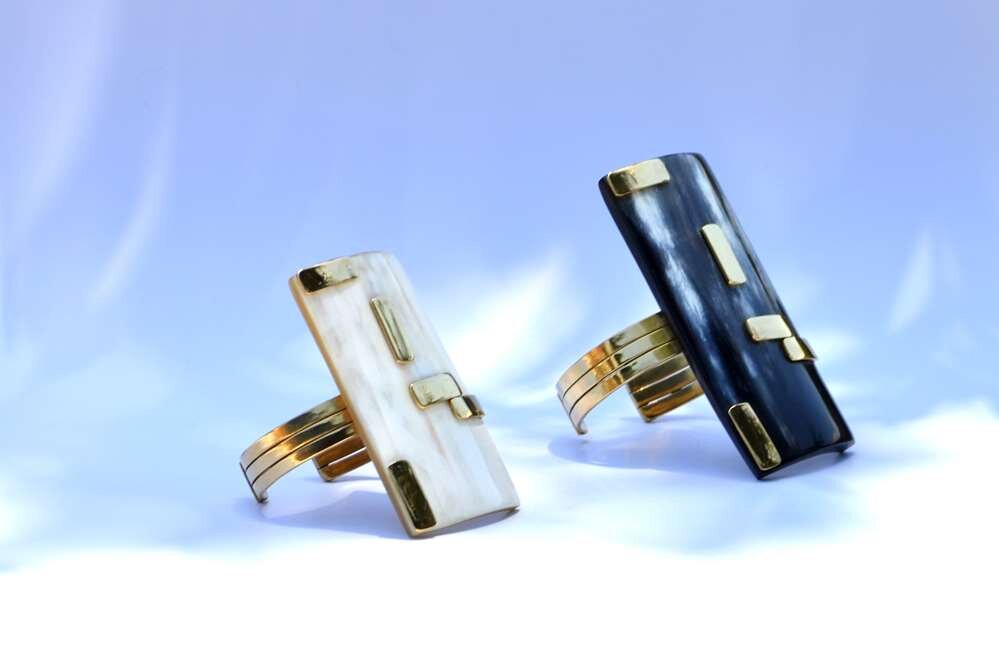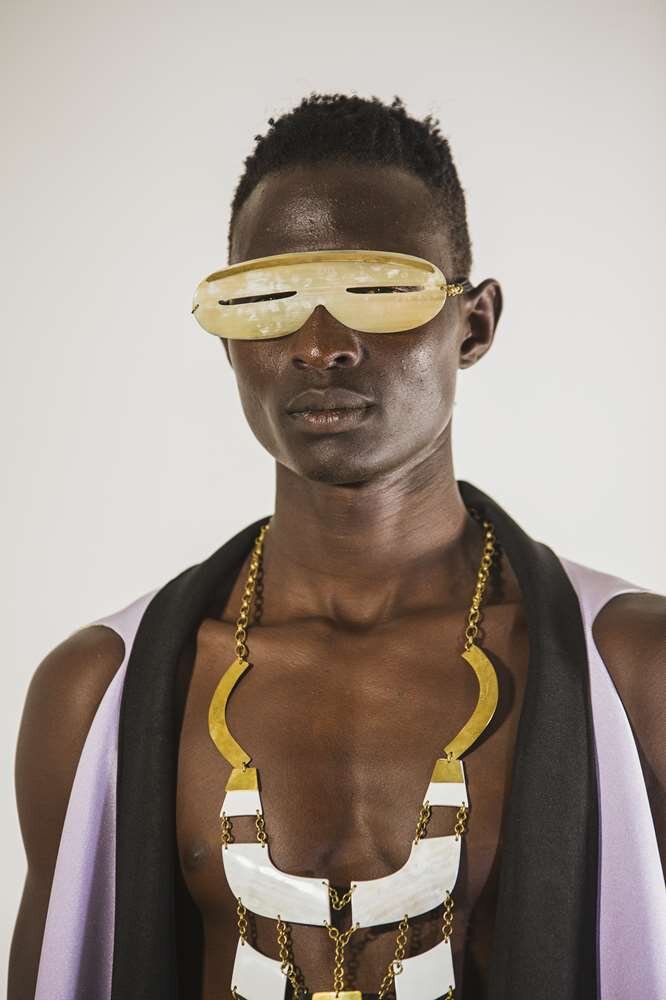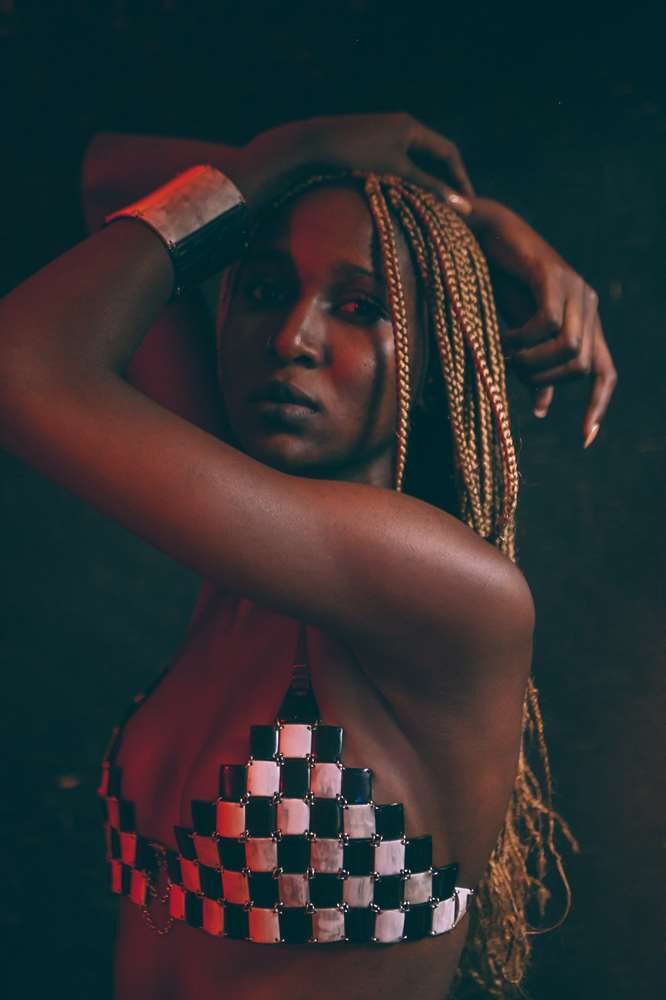The Burundi-based jewellery designer on being part of EFI’s Accelerator Programme
Since 2013, the Ethical Fashion Initiative, a programme of the International Trade Centre, has aimed to empower artisans in developing countries by building sustainable supply chains and connecting them to both global and independent brands. It’s also dedicated to aiding emerging African designers to develop their manufacturing and export capabilities. And this year it launched its Accelerator Programme, which selected five designers from over 250 entries - Jiamini, Lukhanyo Mdingi, REIGN, Margaux Wong and WUMAN – for business support.
“These designers showcase the variety of African voices - five very different talents from differing parts of the continent creating unique work,” explains Simone Cipriani, head and founder of EFI. “African creativity matches a growing African market which is very self-aware of the beauty of the continent. I see an emerging pride around this creativity.” EFI’s industry professionals offered mentorship and training to the designers and now they will have their video work shown at Pitti Uomo in 2021. “I'm so looking forward to seeing them develop and grow in their careers as designers on the world stage,” Cipriani adds.
Nataal talks to Burundi-based designer Margaux Wong about her cow horn and brass jewellery and vision for her brand.
Can you tell us a little bit about your background?
I am Guyanese by birth. I grew up in one of the poorest but most interesting, colourful and entertaining neighbourhoods in Georgetown. My mum often attached large sheets of plain paper to the walls of our wooden home so that I could enjoy painting and colouring – she is my hero. While in boarding school, I would escape into the art lab while my classmates slept at night. Art has been a means of escape, fantasy and therapy for me all my life.
What took you to Burundi?
I left Guyana for London, my dream city, at 23 years old. I visited amazing museums, art shows and craft markets, studied short courses at the London College of Fashion and worked as a PA for Catherine Walker - one of Princess Diana’s favourite designers. While in London I met Simba, who is Burundian and who became my husband. I had never heard of Burundi before meeting him and certainly had never dreamt of moving here but nine months after the birth of our twins that’s what we did. It changed my life in a wonderfully unexpected way.
What is your brand ethos?
Its organic realisation is inherited from the Amazonian lifestyle of my fore parents. Growing up in Guyana, we were trained to live a lifestyle of zero waste. This way of living honours the environment by utilising her resources responsibly and following basic values instilled by the elders around me. This forms the basis of my ideals as a sustainable creative.
How does that translate into your designs and business model?
I have been working with sustainable materials for almost 20 years. I have used found objects from every beach I’ve ever visited - shells, bamboo, sticks and glass. When I moved to Burundi, I endeavoured to find local materials which were under utilised. After travelling around the region, I was inspired to search of cow horn and artisans who could craft such material. We also work hard to ensure that we have as little waste as possible by using left-over brass from previous collections to furnish new pieces. We offer fair wages, a healthy working environment and are making contributions towards poverty reduction among the gifted people we work with and our communities. Our long-term goals include training HIV positive women in the art of package making and also training other artisans to produce homewares.
Tell us about the traditional techniques in you work.
I have always been a fan of using my hands to create. There is a certain grounding and bonding which takes place when an artist feels their material of choice. This is the experience of working in our atelier. Applying human touch using simple tools helps us to stay connected to our materials and indirectly, to the people who wear our art. It is also important to preserve the traditional techniques for posterity. Burundi has lost a lot of its culture and traditions due to conflict. Art for some time was not a priority or seen as a means to transfer skills and culture as people were forced into survival mode. We want to recapture some of what has been lost and provide a means for this new generation of artists to thrive proudly as they acquire skills which were once treasured and protected. We desire for artists to be celebrated and seen as carriers of treasure.
How do you want your jewellery to make the wearer feel?
Many clients have commented that they feel a sense of royalty and luxury when wearing my jewellery. It is in this spirit that I create it. The message is that true wholesomeness can only truly manifest when the source of the object comes from a place of purity and good intent. We hope that through our entire process, from conception to design to production, the spirit of creating beauty from what seems worthless remains true. We want our jewellery to represent transformation and elegance.
What has being part of EFI’s Accelerator Programme meant for you?
When I responded to the call to apply, I had been struggling as designer, finance person, marketing team, quality control - I did it all and I was tired. I needed mentorship and it was urgent. So when I was selected it was an answered prayer and I felt instant relief. My business plan is finally on the right path. Being part of the programme has been a privilege and a confirmation that commitment, hard work, faith and perseverance are keys to success. As we prepare to launch our collections in January with the full support of the EFI, I am confident in the success to come.
Read our interview with Simone Cipriani of Ethical Fashion Initiative here.




